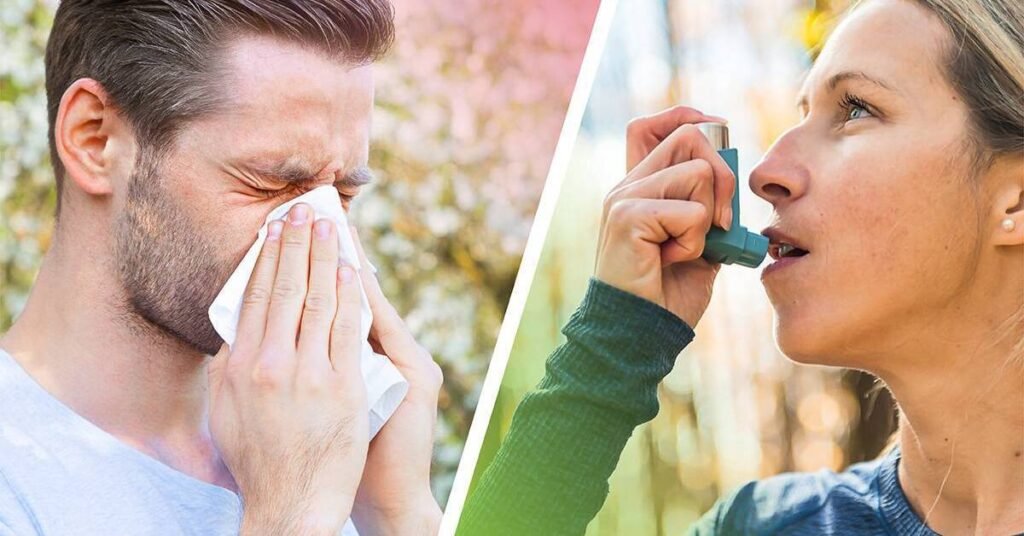Living in Orlando has its perks: sunny skies, warm weather, and plenty of outdoor fun. But for those who are prone to allergies, this beautiful climate can be tough to handle. The city’s subtropical weather creates a perfect environment for allergens to thrive year-round, making it tough for many to escape the sneezing, itchy eyes, and stuffy noses. Consulting Orlando allergy and asthma specialists can help you understand when and why allergies flare, enabling you to better manage symptoms and enjoy Orlando living.
Orlando’s Climate and Its Effect on Allergies
Orlando’s warm, humid environment allows allergens to flourish year-round. Unlike colder areas where winter frost offers relief, the city’s mild winters mean allergens like dust mites and mold stick around indoors, while plants keep pollinating for longer stretches. Grass, trees, and weeds release pollen almost throughout the year, and the constant humidity makes mold a recurring problem. From outdoor triggers like tree pollen in the spring to indoor irritants like dust and mold in the winter, Orlando’s climate keeps those prone to allergies on their toes.
Breakdown of Orlando Allergy Seasons
Unlike other areas with peak allergy seasons and no allergens, Orlando’s allergy season lasts all year round, with seasonal peak periods in April, May, and September.
- Winter (December to February)
Winter in Orlando might seem like a time to breathe easy, but it’s still a tricky season for people prone to allergies. Cooler weather keeps pollen counts lower, but indoor allergens like dust mites and mold are common culprits. With homes sealed up to keep warm, allergens can accumulate indoors, causing problems for those sensitive to dust and mold.
- Spring (March to May)
Springtime is one of the most challenging seasons for Orlando residents with allergies. Tree pollen, especially from oak, cypress, and pine, dominates the air, peaking in March and April. The high pollen counts can lead to intense symptoms for many people, making it a season to watch out for if you’re sensitive to tree pollen.
- Summer (June to August)
Summers in Orlando are hot and humid, which means grass pollen is prevalent, and mold thrives due to frequent afternoon thunderstorms. Mold spores spread easily in damp conditions, making it a tough season for those with mold allergies or asthma. The combination of heat, moisture, and allergens creates a perfect storm for those prone to allergies.
- Fall (September to November)
In the fall, Orlando’s allergy focus shifts to weed pollen, particularly ragweed, which can cause symptoms well into November. Along with weed pollen, mold continues to be an issue due to decaying leaves and lingering humidity. The warm, damp weather creates the ideal conditions for mold growth, both outdoors and indoors.
Common Allergy Symptoms in Orlando
Orlando’s extended allergy seasons can cause a range of symptoms, from sneezing and itchy eyes to nasal congestion and coughing. For those with asthma, allergens can trigger more serious reactions, such as wheezing and shortness of breath. It’s important to be aware of how the different allergens affect you and take note of when your symptoms are at their worst.
Tree pollen is more of an issue in the spring, grass pollen in the summer, and weed pollen in the fall. Mold is a recurring problem throughout the year, especially during the damp summer and fall months. If you’re experiencing symptoms year-round, it might be worth consulting with an Orlando allergy and asthma specialist to identify specific triggers.
How to Prepare for Orlando’s Allergy Seasons
Managing allergies in Orlando means staying ahead of the seasons and planning accordingly.
- Home Maintenance: Keep your home allergen-free by regularly cleaning and replacing air filters, especially during peak allergy seasons. Maintain your HVAC system to prevent mold and dust buildup, and close windows during high pollen periods.
- Medication and Treatment: Over-the-counter antihistamines and nasal sprays can help. For severe cases, consult a local allergist for testing and allergy shots.
- Air Quality Management: Air purifiers with HEPA filters reduce indoor allergens, while dehumidifiers control mold. Keep indoor humidity between 30%-50% to prevent mold growth.
If managing your allergies feels overwhelming, many resources are available in Orlando. Local Orlando allergy and asthma specialists can provide allergy testing, treatment plans, and tips to help you manage symptoms. Additionally, checking daily pollen counts and using allergy apps can help you plan your day and minimize exposure to allergens.













































